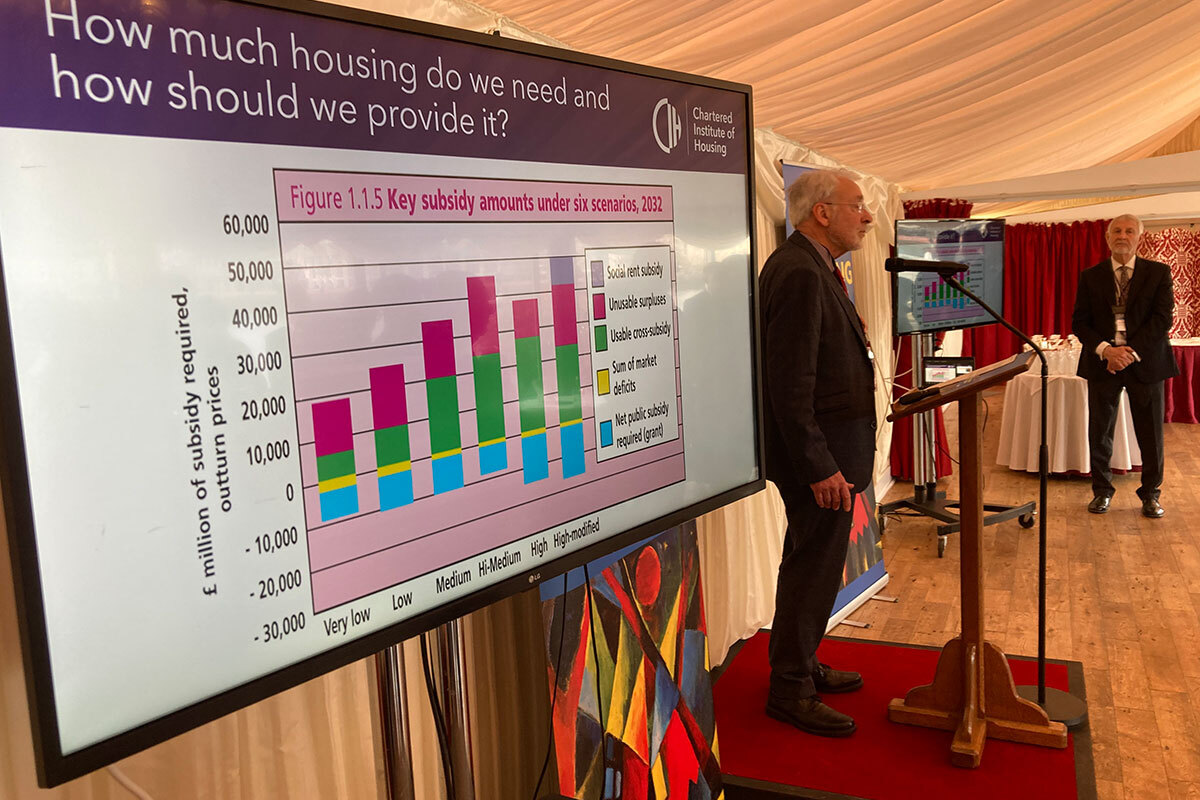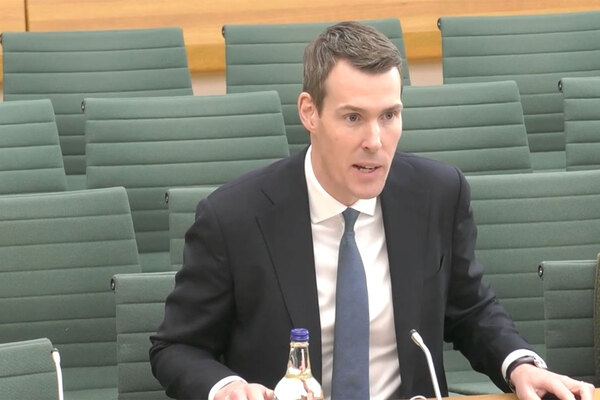You are viewing 1 of your 1 free articles
Building 90,000 social rent homes a year is affordable, says professor in latest CIH UK Housing Review
The Chartered Institute of Housing’s (CIH) latest UK Housing Review has found that building 80,000 to 90,000 social rent homes “can be paid for from the surpluses generated from market development”.

Attendees at the launch event at the House of Lords today were treated to an overview of some of the sections. Professor Glen Bramley discussed his chapter on a new assessment of housing need in England and options for meeting it.
A professor of urban studies at Heriot-Watt University, Professor Bramley said: “Can we afford to build 80,000 to 90,000 social rented homes each year? Yes, with rigorous, consistent application of the established planning obligations system, most of that can be paid for from the surpluses generated from market development.”
The figure highlighted by Professor Bramley is the same as Inside Housing’s Build Social campaign, which calls on political parties in England to pledge to build 90,000 homes a year over the next decade.
Professor Bramley added: “We’ll have to build up to it gradually, but we should be able to get to a place where, with the present level of subsidy, we could deliver 60,000 social rent homes, and to get to 90,000, we’d need some more public subsidy.
“The next government could, and I hope would, commit to such a programme, and they do know about these calculations. It will need to face down self-interested lobbying from several directions... while provisional transitional arrangements through some difficult years will be needed.”
The CIH review, now in its 32nd year, brings together the most important housing statistics from across the UK. Each chapter in the 330-page report features a wealth of in-depth analysis. Supported by more than 200 charts and tables of statistical analysis, the report paints a picture of housing across the UK.
Additional issues covered in the 2024 edition include a review of ethnic inequalities and how housing policy is failing to address them; an analysis of the effects of the UK housing system on recent migrants; and a ‘long view’ of the housing benefit system, how it developed and the policy issues raised.
The host of the event, Lord Richard Best, urged all political parties to engage with and utilise the publication.
He said: “Every year, the UK Housing Review brings us all up to speed with the hard evidence and clear analysis that should – but seldom does – inform all housing policy decisions.
“The review shows us where we have come from and points us to where we are heading. This is invaluable at any time, but especially now, when the political parties are busy writing their manifestos.”
Other guest speakers included Jasmine Basran, head of policy and campaigns at Crisis, the homelessness charity, and Mushtaq Khan, chief executive of the Housing Diversity Network, alongside review authors Peter Williams, a departmental fellow in land economy at the University of Cambridge, and Professor Mark Stephens.
Professor Stephens, the Ian Mactaggart chair of land, property and urban studies at the University of Glasgow, explained the UK was spending over £30bn a year on housing benefit, and this was due to creep up to more than £35bn in the next few years.
He added: “It is 20 years since government had a strategic view of housing policy, and this failure is clearly reflected in the ridiculously high turnover of housing ministers.”
He also said he hoped “the review will be used to take a step back and to rethink housing policy to tackle the current crisis”.
Gavin Smart, chief executive of the CIH, said: “This year’s UK Housing Review is published at a crucial time. Never has the need for more housing investment and a strategic approach to housing policy been as great. I urge all political parties to engage with the wealth of information and analysis available in the UK Housing Review series.”
In January, the CIH backed the government’s move to revert to an inflation-linked hike in social rents, meaning a maximum increase of 7.7% for tenants.
Sign up for our daily newsletter
Already have an account? Click here to manage your newsletters











